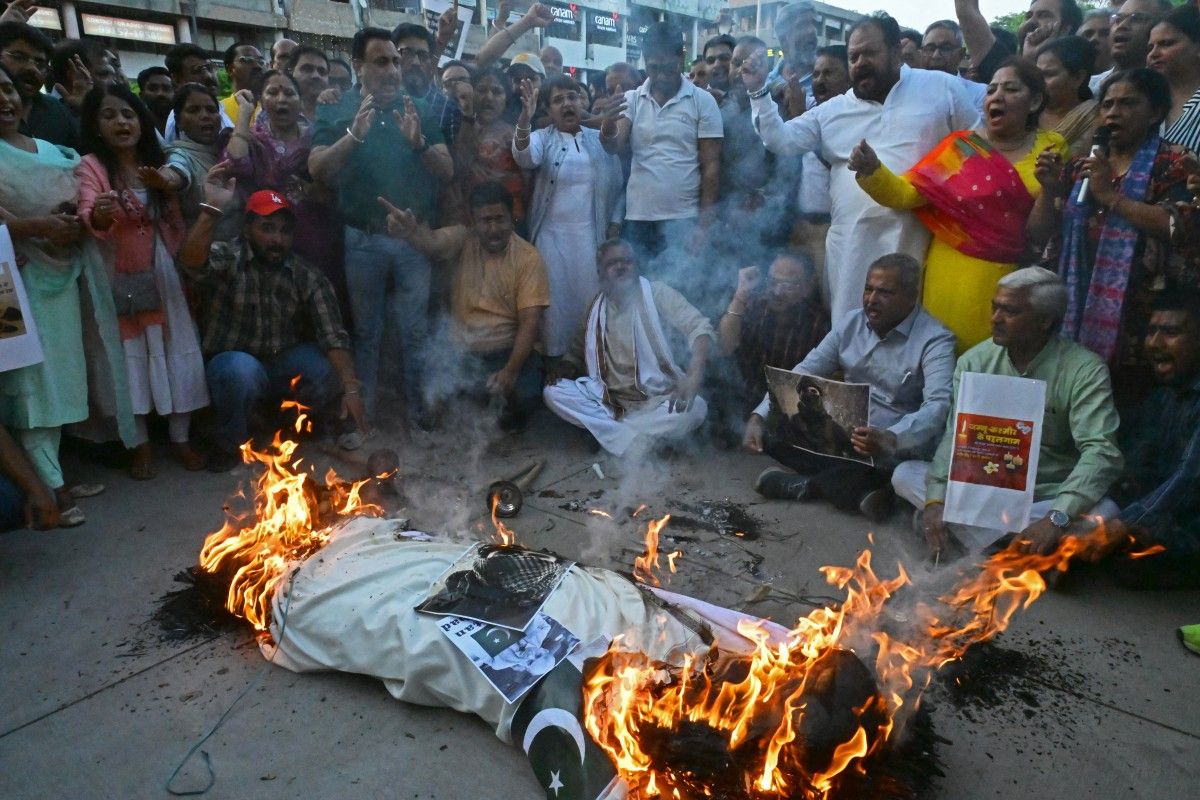
India unveiled a raft of punitive diplomatic measures against archrival Pakistan on Wednesday, accusing Islamabad of supporting "cross-border terrorism" after a deadly attack on civilians in Kashmir.
These measures include the suspension of a key water-sharing treaty, the shutting of the main land border crossing between the neighbors, and a raft of diplomatic staff reductions, including withdrawing several Indian staff from Islamabad and ordering Pakistanis home.
"The Indus Waters Treaty of 1960 will be held in abeyance with immediate effect until Pakistan credibly and irrevocably abjures its support for cross-border terrorism", Indian Foreign Secretary Vikram Misri told reporters in New Delhi.
The 1960 Indus Waters Treaty gave India and Pakistan three Himalayan rivers each and the right to hydropower and irrigation resources.
It established the India-Pakistan Indus Commission, which is supposed to resolve any problems that arise.
Misri added the border crossing at the Attari-Wagah border "will be closed with immediate effect", although those with valid travel documents may return before May 1.
The border closure is hugely symbolic—it is at the Attari-Wagah crossing that crowds gather each evening to cheer on their nation's soldiers as they goose-step in a chest-puffing theatrical ritual symbolizing the countries' rivalry.
The daily border ritual, which began in 1959, has largely endured, surviving innumerable diplomatic flare-ups and military skirmishes.
India said it had also ordered Islamabad's defense attachés and other military officials in New Delhi to leave within a week and said that India would also be withdrawing its own defense, navy, and air advisors from Pakistan.
No group has claimed responsibility for the attack that killed 26 men on Tuesday in the Muslim-majority region where rebels have waged an insurgency since 1989.
The insurgents are seeking independence or a merger with Pakistan, which controls a smaller part of the Kashmir region and, like India, claims it in full.
The Indus River is one of the longest on the Asian continent, cutting through ultra-sensitive borders in the region, including the demarcation between nuclear-armed India and Pakistan in Kashmir.
The 1960 Indus Waters Treaty theoretically shares out water between the two countries but has been fraught with disputes.
Pakistan has long feared that India, which sits upstream, could restrict its access, adversely affecting its agriculture.
With AFP



Comments